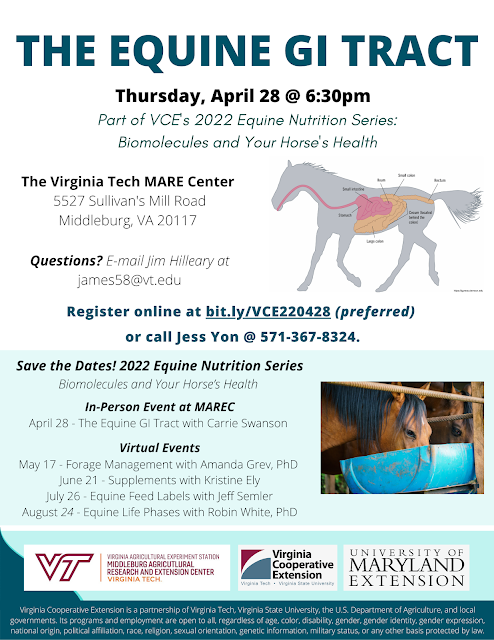TRI-STATE BEEF CONFERENCE TO BE HELD
AUGUST 4th IN BLOUNTVILLE, TN
The fourteenth Annual Tri-State Beef Cattle conference
will be held at the Ron Ramsey Regional Ag Center in Blountville, Tennessee on Thursday,
August 4, 2022. This year’s conference will address topics of interest to both
stocker and cow-calf producers. The conference will be a one-day event and will
include educational sessions covering such topics as stocker health, finished
cattle price transparency legislation, beef cattle outlook, knowing where you
stand on profitability, and antibiotic prescription requirements. There will
once again be virtual tours of operations from each of the three states and
then a time of questions and answers with the producers themselves.
A trade show will be open during the conference,
with many of the organizations involved in the region’s beef industry there for
participants to meet and learn more about their products and services.
The conference will
begin with registration at 8:00 a.m. and the program beginning at 9:20 a.m. The
trade show will open at 8:00 a.m.
The meeting is being sponsored by the
University of Tennessee Extension, Virginia Cooperative Extension, and North
Carolina Cooperative Extension. Registration information and complete details
will be available through your county Extension Office. Registration for the
conference is $20 through July 22nd and $25 after July 22nd.
Additional information can be obtained from Dr. Scott Greiner, Extension Beef
Specialist, Virginia Tech, phone 540-231-9159, email sgreiner@vt.edu, through your local Extension
office, or on the web at https://www.apsc.vt.edu/extensionandoutreach/beef-extension.html
PROGRAM
8:00 a.m. Registration
and Visit Trade Show
9:00 a.m. Welcome
9:10 a.m. Finished
Cattle Price Transparency and Legislation
Dr.
Charley Martinez
Assistant
Professor and Extension Specialist, University of Tennessee
9:50 a.m. Stocker
Cattle Receiving Simulation
Dr.
John Groves, DVM
Livestock
Veterinary Service, Eldon, Missouri
10:30 a.m. Knowing Where
You Stand: 5 Standards to Profitability
Mr.
David Bilderback
Area
Farm Management Specialist, University of Tennessee
11:00 a.m. Break and
Visit Trade Show
11:30 a.m. Market
Outlook
Dr.
James Mitchell
Livestock
Economist, University of Arkansas
12:10 p.m. Steak Lunch
and Visit Trade Show
1:20 p.m. Antibiotic
Prescription Requirements, Asian Long-Horn Tick and Theileria
Dr.
John Currin, DVM, DABVP
Clinical
Associate Professor, Virginia-Maryland College of Veterinary Medicine
2:00 p.m. Virtual
Tours and Panel Discussion
3:00 p.m. Wrap-up







